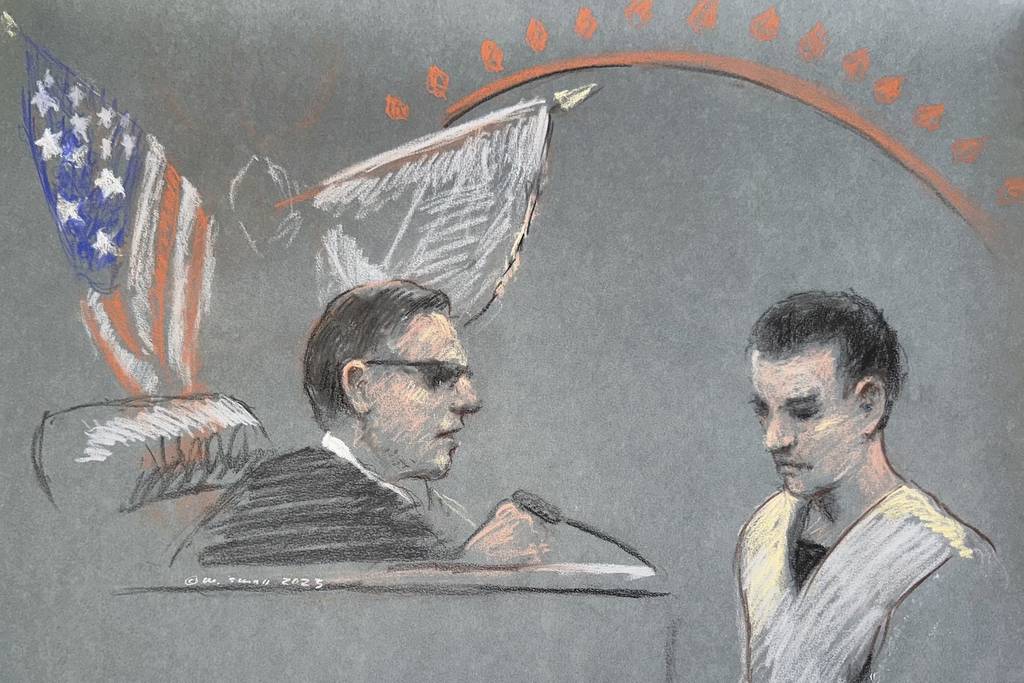Editor’s note: This story has been updated with information about the unit losing its intelligence mission.
The Air Force is investigating how a lone airman could access and distribute possibly hundreds of highly classified documents, and in the meantime has taken away the intelligence mission from the base where the leaks took place, Air Force leaders said Tuesday.
Air Force Secretary Frank Kendall told Congress he has directed the Air Force inspector general to go look at the Air National Guard 102nd Intelligence Wing based in Cape Cod, Massachusetts, where Airman 1st Class Jack Teixeira served and look at “anything associated with this leak that could have gone wrong.â€
Teixeira, 21, was charged Friday in the U.S. District Court in Boston with unauthorized removal and retention of classified and national defense information. He is expected back in court for a hearing Wednesday.
The leaks have raised questions as to how a single airman could have removed so many documents without being detected, why there were not safety checks in place and how the documents could have lingered online undetected for months.
“How could this guardsman take this information and distribute it electronically for weeks, if not months, and nobody knew about it?†Democratic Sen. Jon Tester of Montana asked the Air Force leaders testifying before a Senate defense appropriations subcommittee.
These are questions the Air Force is asking, too. For top secret information across the military, there’s supposed to be accountable control officers who are responsible for recording active top secret documents and ensuring they have been either properly secured or disposed of, such as through a shredder or by burning them.
Pending further review, “The 102nd Intelligence Wing is not currently performing its assigned intelligence mission. The mission has been temporarily reassigned to other organizations within the Air Force,†the service said in a statement to The Associated Press.
In addition, the Air Force is conducting a service-wide review of how each command handles classified information, Air Force Chief of Staff Gen. C.Q. Brown told members of subcommittee.
The Air Force’s own reviews are on top of a military-wide review directed on Monday by Defense Secretary Lloyd Austin. Austin has ordered that all military facilities that handle classified information report to him within 45 days on how they access, share, store and destroy the nation’s secrets following the leaks.
The leaked documents exposed to the world unvarnished secret assessments on the war in Ukraine, the capabilities and geopolitical interests of other nations and other national security issues.
Teixeira posted the highly classified material in a geopolitical chat room on Discord, a social media platform that started as a hangout for gamers.
“He had access to some aspects based on his job as a cyber administrator. He took advantage of that access,†Brown said.








